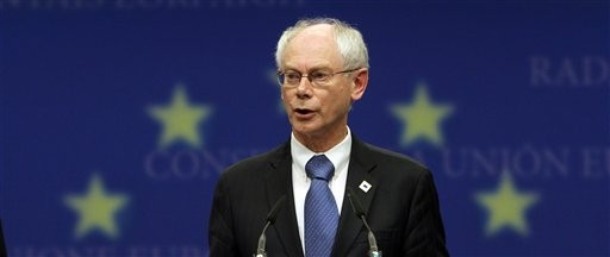
From Steven Erlanger, the New York Times: [T]he new European president of the council of national leaders, Herman Van Rompuy, an economist and former Belgian prime minister, has moved more quickly than others to establish a powerful staff. Given the urgency of the economic crisis and the need for decisions by national leaders, he has managed to “presidentialize” decision-making, undercutting the influence of the European Commission, national finance ministers and the Eurogroup led by Jean-Claude Juncker, which sets economic policy for countries using the euro currency.
While not able to impose his will on Mr. Sarkozy or Mrs. Merkel, who dislike each other, Mr. Van Rompuy has worked hard to be a discreet and calming intermediary, senior European officials say. Europe’s institutional confusions have made the French-German relationship even more important, rather than less, these officials say.
Mr. Van Rompuy’s negotiating skill has also overshadowed José Manuel Barroso, the president of the European Commission, the permanent bureaucracy, which has had little to offer in a crisis founded in the debts and budget deficits of governments in the 16-nation euro zone. Even worse, France and Germany have sent relatively weak commissioners to serve in Brussels, and Germany in particular has been adamant in refusing to cede any new economic powers to the commission. Mrs. Merkel also insisted that Mr. Van Rompuy, not Mr. Barroso, be put in charge of a task force to recommend euro-zone reforms.
At the same time, the new high representative for foreign and security policy, Catherine Ashton, has made barely a ripple. She has concentrated on replacing her staff and negotiating with the European Parliament and nations over the shape and personnel of the new External Action Service, a European Union diplomatic corps intended to supplement and coordinate, but not replace, national diplomats. The service, which could end up with about 5,000 diplomats, will incorporate current overseas representatives of the commission, who are maneuvering to keep their posts.
Mr. Barroso, however, has already created waves by appointing his former chief of staff, a fellow Portuguese, João Vale de Almeida, to the new European Embassy in Washington, one of the most prominent posts to be filled in addition to those in Moscow and Beijing, without consulting member states. (photo: AP)
Image: ap%207%202%2010%20Herman%20Van%20Rompuy.jpg
